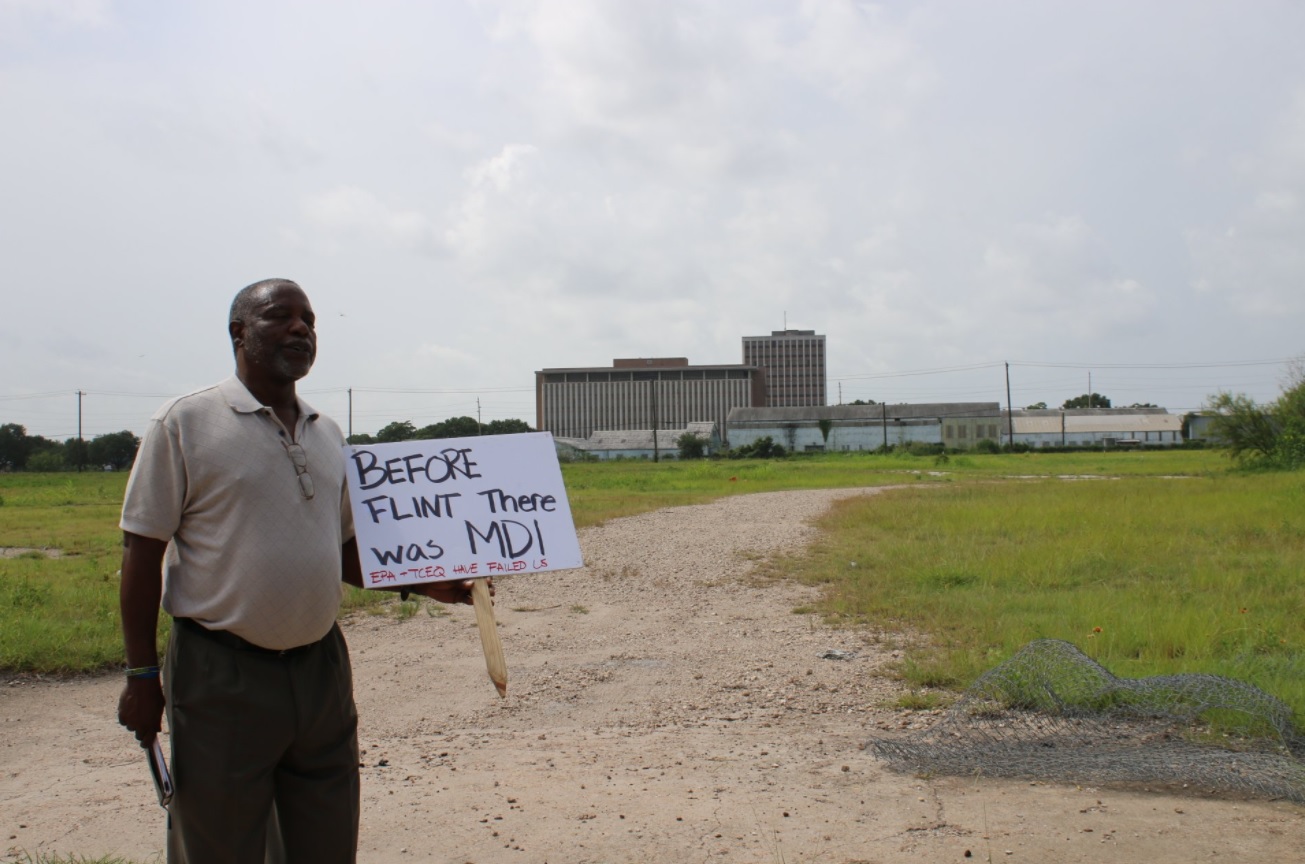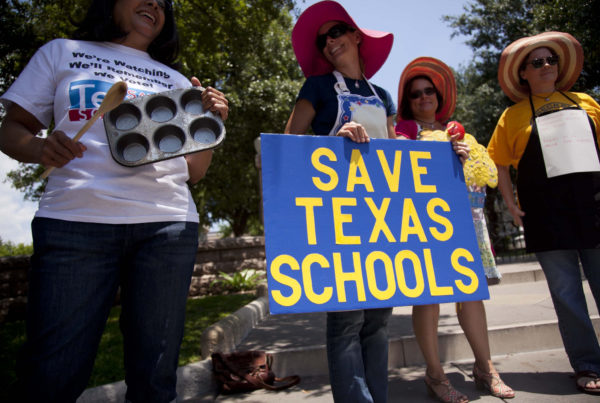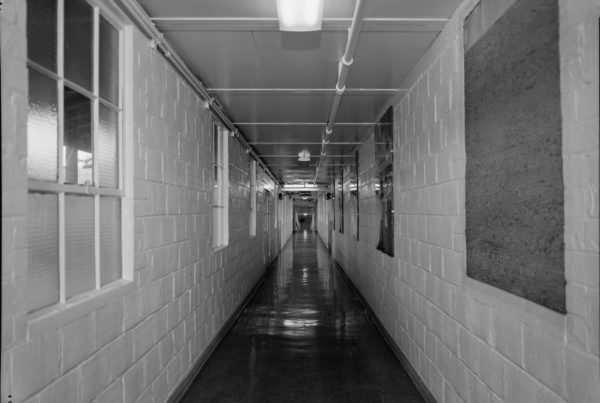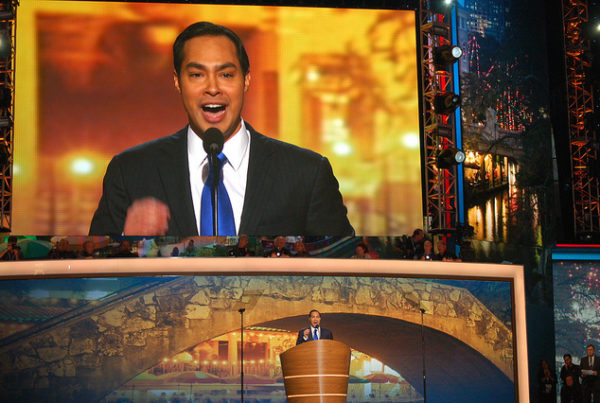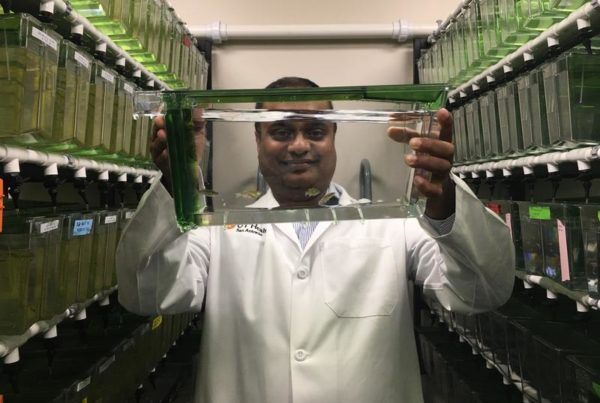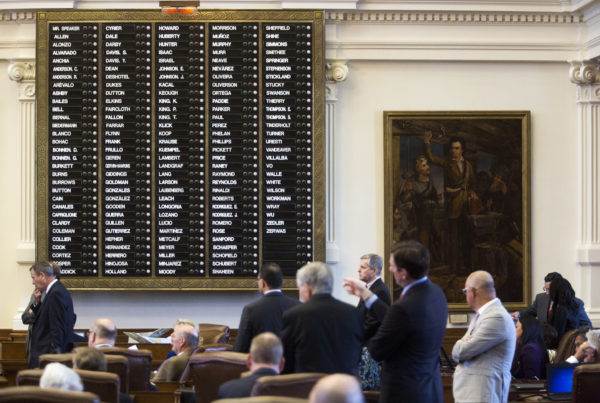The Environmental Protection Agency is looking for faster and more efficient ways to clean up contamination across the U.S.
The agency promotes a cleanup effort in Houston as a case study for the kind of public-private partnerships that Administrator Scott Pruitt would like to see more of.
The site is now vacant, and looks harmless enough, but some aren’t so sure about that.
“Condominiums are going to be built on this 36 acres of land,” says Juan Parras, with the environmental justice advocacy group T.E.J.A.S.
He’s gathered with a handful of other Fifth Ward residents and activists outside the “MDI” Superfund site, once home to a metal casting facility that spewed lead contamination on the surrounding neighborhood.
After a multi-million dollar cleanup, the site’s future is looking very different. High-profile Houston developer Frank Liu bought the property years ago, in a first-of-its-kind deal with the EPA where the company would pay for and carry out the cleanup.
The agency says it was a success: part of the site was removed from a national priorities list in 2010. The site’s last progress review in 2012 said that after thousands of cubic yards of contaminated soil and debris were trucked off, health and environmental threats were “eliminated” in some areas, and in other parts of the site there were no “unacceptable” threats left.
But Parras, with the environmental group, isn’t convinced.
“We’re not satisfied with the EPA saying that it’s cleaned up,” he says. “We want independent testing so that we can confirm for ourselves and our communities that it is cleaned up.”
Local reverend James Caldwell dismisses the public-private approach as a “cost-saving tactic.”
“From our perspective, no amount, no amount of lead in a child is acceptable,” he says.
Caldwell feels this innovative agreement was just a way to “cover up” the problem. He’s highly skeptical that the developer that handled the cleanup did a thorough job. As he describes it, that feeling stems from broader concerns about gentrification in east Houston.
“It’s an oligarchy,” he says. “It’s part of this profit before people concept. The only thing that developers are interested in in our communities is profit. They see an opportunity to make money, then they’re going to come in.”
A spokesperson for Liu, the developer who bought the property, describes these concerns as simply “uneducated,” saying Liu spent more than $7 million of his money cleaning up the site to the same standards as the EPA would have, had the agency handled it.
“No good deed goes unpunished,” Liu says, the only comment he would offer on the matter.
The Houston activists are part of a much broader opposition effort against the EPA’s shifting approach to dealing with Superfunds.
Several Texas advocacy groups have signed onto a “People’s Task Force” on the future of the program. Among their other recommendations, they want to see more “complete” cleanups instead of ones that simply “contain” contamination, and more community input in the planning process.
An EPA task force on the issue released recently its own list of recommendations.
“Big picture, it shows that Scott Pruitt wants to make Superfund the centerpiece for EPA’s activities in the near future,” says University of Houston environmental law professor Tracy Hester.
Part of the recommendations call for more private investment in cleanups, which Hester says isn’t a huge shift from past administrations.
“Even going back to the 1990’s, EPA has always had a focus on trying to make these properties usable again, and inviting people who want to buy them, to clean them up and then sell them at a high profit markup, to be part of that process,” he says. “Congress has revised the statute to make that more possible.”
The difference, Hester notes, is emphasis. If Pruitt’s efforts to promote redevelopment Superfund sites comes at the expense of thorough cleanups, that will spark further concerns for environmental groups, and for the communities near those sites.


